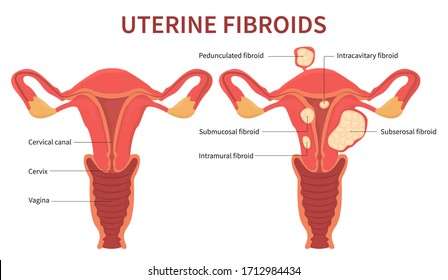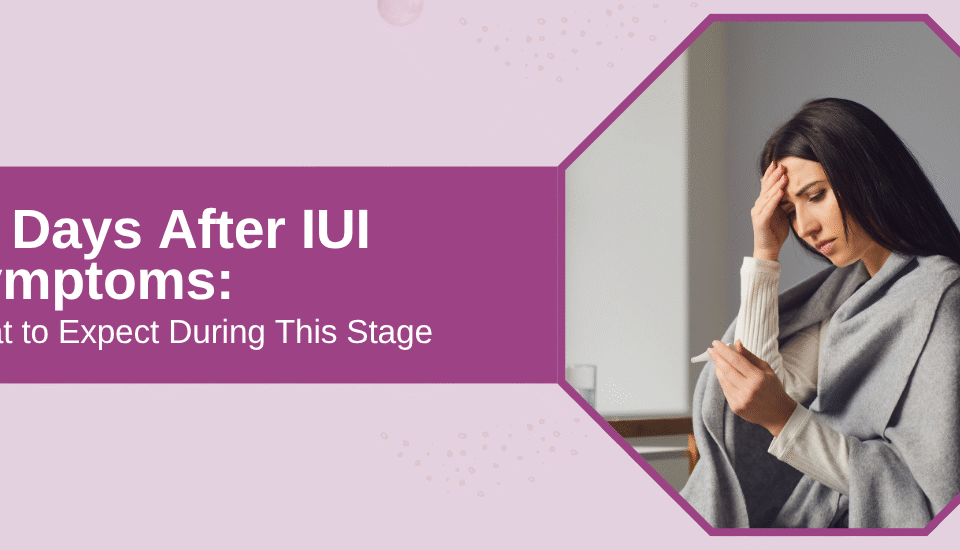- Have any questions?
- +91-98717 17305
- babiesandus12@gmail.com
How to Avoid Miscarriage with Fibroids

Day 37 No Period After Failed IVF
January 5, 2023
What Happens If You Get Pregnant 2 Months After Myomectomy
March 8, 2023Giving birth to a child is one of the most joyful experiences for most women. However, this desire for parenthood may be hampered by worry about their health and their unborn child’s health for women impacted by uterine fibroids.
Uterine fibroids are benign (non-cancerous) tumors that grow in the uterus. They are made up of muscle cells and other tissues and can vary in size, shape, and location.
They are common, affecting up to 70% of women at some point in their lives, and are most common in women of reproductive age.

Some women with uterine fibroids do not experience any symptoms, while others may have heavy menstrual bleeding, pelvic pain or pressure, and frequent urination.
In some cases, uterine fibroids can also cause fertility problems or complications during pregnancy.
If you plan to start a family, you should consult a doctor as soon as possible to be safe. This is because fibroids cause miscarriage in some cases.
You can visit Babies & Us, a well-known and trusted IVF Center in Mumbai, for pre-pregnancy counselling.
The experienced doctors will help you resolve your concern regarding fibroids and miscarriage risk so that you can have a healthy and safe pregnancy.
Continue reading to find out if it is possible to have a miscarriage with fibroids, ways to avoid it, and treatment options.
Do fibroids cause miscarriage?

Generally, fibroids are not associated with an increased risk of miscarriage. However, in some cases, they can contribute to pregnancy loss.
Ways in which fibroids can potentially cause miscarriage:
- Size and location of the fibroids: If a fibroid is large or in a position that obstructs the blood flow to the fetus, it can increase the risk of miscarriage. Additionally, if a fibroid is located within the uterine cavity, it could disrupt the implantation of the fertilized egg in the uterine lining, leading to a miscarriage.
- Hormonal imbalances: Fibroids can alter the levels of certain hormones in the body, affecting pregnancy.
- Uterine contractions: Fibroids can cause the uterus to contract, leading to miscarriage.
- Abnormal bleeding: It can also cause irregular bleeding and discomfort, potentially leading to premature labor and delivery, increasing the risk of miscarriage.
By and large, most women with fibroids can carry a pregnancy to term without any problems.
Dr. Hrishikesh Pai, a renowned IVF doctor in Mumbai and the co-founder of Babies & Us, states, “If you are pregnant and have fibroids, it is vital to discuss your specific situation with your doctor to determine if any additional monitoring or treatment is needed.”
What are the ways to avoid miscarriage with fibroids?

Miscarriage is the loss of a pregnancy before the 20th week. It is a common occurrence in 10-20% of known pregnancies.
While fibroids are common and usually not harmful, they can sometimes cause problems during pregnancy, including an increased risk of miscarriage.
Here are some ways to try to reduce the risk of miscarriage with fibroids:
- Get early and regular prenatal care: Seeing a gynecologist regularly throughout your pregnancy can help identify and manage any potential problems.
- Maintain a healthy lifestyle: Eat a nutritious diet, exercise regularly and avoid substances such as tobacco and alcohol, which can increase the risk of miscarriage.
- Keep your uterus as healthy as possible: Avoid lifting heavy objects, and get plenty of rest to help reduce the risk of miscarriage.
- Consider taking medications or supplements: Your doctor may recommend certain medications or supplements, such as low-dose aspirin or progesterone, to help reduce the risk of miscarriage.
- Consider surgery: If your fibroids are causing significant problems during pregnancy, your doctor may recommend surgery to remove them. This is generally only done in cases where the fibroids are causing substantial problems, or the pregnancy is at high risk.
It is necessary to keep in mind that it is not always possible to prevent a miscarriage.
If you have fibroids and are pregnant or planning to become pregnant, it is crucial to speak with your gynecologist about your specific situation and any potential risks.
What are the treatment options for fibroids to avoid miscarriage?

There are several treatment options for fibroids that may help reduce the risk of miscarriage:
Medications:
Some medications can help shrink fibroids or relieve symptoms such as heavy bleeding. These may include gonadotropin-releasing hormone agonists (GnRH agonists), selective progesterone receptor modulators (SPRMs), or nonsteroidal anti-inflammatory drugs (NSAIDs).
Uterine artery embolization:
This is a minimally invasive procedure in which small particles are injected into the blood vessels that supply blood to the fibroids, cutting off their blood supply and causing them to shrink.
Myomectomy:
This is a surgical procedure in which the fibroids are removed from the uterus. Myomectomy can be performed through a laparotomy or laparoscopically.
It is essential to discuss the risks and benefits of each treatment option with your doctor, as well as any concerns you have about the possibility of miscarriage.
Your doctor can recommend the best treatment option based on your specific circumstances.
What are the risk factors for miscarriage with fibroids?
Several risk factors may increase the likelihood of miscarriage in the presence of fibroids:
- Location of fibroids: Fibroids located in the uterine cavity (submucosal fibroids) or distorting the shape of the uterine cavity (intramural fibroids) are more likely to cause problems during pregnancy.
- Size of fibroids: Larger fibroids may increase the risk of miscarriage, mainly if they are located in the uterine cavity or distort the shape of the uterine cavity.
- Number of fibroids: Multiple fibroids may increase the risk of miscarriage, especially if they are large or located in the uterine cavity.
- Previous miscarriages: If you have had a previous miscarriage, you may be at increased risk of experiencing another miscarriage if you have fibroids.
Consult our knowledgeable IVF doctor in Mumbai at Babies & Us to learn about fibroids and your treatment options.
We are committed to assisting our patients in increasing their chances of getting pregnant and carrying the child to term.
What are the chances of miscarriage with fibroids?
The chances of miscarriage can be influenced by several factors, including the size, number, and location of the fibroids. However, it is important to note that many women with fibroids go on to have successful pregnancies without experiencing miscarriage.
If you have fibroids and are concerned about your risk of miscarriage, you can consult with Dr. Hrishikesh Pai, the co-founder of Babies & Us, one of the leading fertility clinic in Mumbai who can evaluate your specific situation and provide personalized guidance

Frequently Asked Questions
Q. What are the chances of miscarriage with fibroids?
A. The presence of fibroids in the uterus can increase the risk of miscarriage, but the exact risk depends on the size and location of the fibroids.
In general, the larger the fibroid, the greater the risk of miscarriage. Fibroids that are located within the uterine cavity or that distort the shape of the uterine cavity are more likely to increase the risk of miscarriage than fibroids that are located outside the uterus.
Q. What type of fibroids cause miscarriage?
A. Submucosal fibroids are the type of fibroids that are most likely to cause miscarriages. These fibroids grow within the uterine wall and can cause the uterus to become distorted and put pressure on the placenta, leading to a miscarriage.
Q. Can exercise prevent miscarriage with fibroids?
A. Exercise can help to improve cardiovascular health, reduce stress, and maintain a healthy weight, which can all contribute to a successful pregnancy. However, it is important to consult a healthcare provider before starting or continuing an exercise program while pregnant.
Q. Does fibroids cause miscarriage ?
A. Large or intracavitary fibroids can increase the risk of miscarriage during pregnancy.
Q. Can miscarriage cause fibroids?
A. No, miscarriage does not cause fibroids. Fibroids are noncancerous growths that develop in the uterus and are not caused by miscarriage.
Q. Can fibroids cause miscarriage in second trimester?
A. Fibroids can potentially increase the risk of miscarriage in the second trimester, particularly if they are large or located within the uterine cavity.




